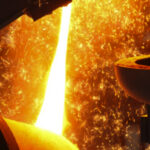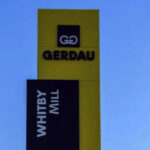Consortium to Demonstrate CCU Technology at Pohang Mill
POSCO Holdings and LG Chem are collaborating to develop carbon reduction technology for the steel industry. Through this cooperation, both companies aim to position themselves as leaders in carbon neutrality by demonstrating technology that significantly reduces carbon dioxide emissions.
POSCO Holdings and LG Chem announced on May 7 that they will participate in the carbon capture and utilization (CCU) mega-project led by the Ministry of Science and ICT.
POSCO Holdings and LG Chem have formed a consortium with institutions such as the Korea Research Institute of Chemical Technology and North Gyeongsang Province for this project. The CCU consortium proposed the Pohang Steel Mill as a demonstration site, which was approved by the Ministry of Science and ICT in October last year. After undergoing a preliminary feasibility study this year, they aim to begin the demonstration next year.
CCU is a technology that captures carbon dioxide and converts it into useful substances. The CCU consortium plans to demonstrate technology that captures carbon dioxide from by-product gases generated in the steelmaking process at Pohang Steel Mill and uses it to produce synthesis gas composed of carbon monoxide and hydrogen.
The synthesis gas produced in this way can be sold as a raw material for chemical products such as sustainable aviation fuel (SAF) or reintroduced into the steelmaking process as a reducing agent to produce molten iron, establishing a resource circulation system. A reducing agent is a substance used to remove oxygen from metals combined with oxygen, such as iron ore, to obtain pure metal. Previously, coal was used as a reducing agent, inevitably resulting in large amounts of carbon dioxide emissions.
POSCO Holdings, centered on its Future Technology Research Institute, will provide the steel mill site and by-product gases in cooperation with POSCO, Research Institute of Industrial Science & Technology (RIST), and POSTECH. It will also develop carbon reduction technologies for the steelmaking process, including carbon dioxide capture and methanol synthesis.
LG Chem will be responsible for demonstrating Dry Reforming of Methane (DRM) technology. DRM is a technology that produces carbon monoxide and hydrogen using carbon dioxide and methane as raw materials, which can then be used again as reducing agents. Carbon monoxide can be used as a raw material for various chemical products such as plastics and can also be utilized as an eco-friendly fuel. LG Chem has been verifying and operating its proprietary process and catalyst technology by constructing a 1,000-ton DRM pilot plant in Daesan, South Chungcheong Province in 2023.
Lee Jong-gu, chief technology officer and vice president of LG Chem, said, “This cooperation is an important turning point that opens an era of carbon neutrality led jointly by the steel and chemical industries, beyond simple collaboration.” He added, “LG Chem will continue to challenge and leap forward to lead global carbon reduction and sustainable innovation technologies in the industry, not staying within the existing industrial structure.”
Kim Ki-soo, chief technology officer and vice president of POSCO Holdings, stated, “This consortium will be an important milestone for achieving carbon reduction goals.” He continued, “We will focus on developing technologies that reduce carbon generated in the steelmaking process and convert it into high-value-added materials to maximize synergy between the two companies.”
Source: www.businesskorea.co.kr



